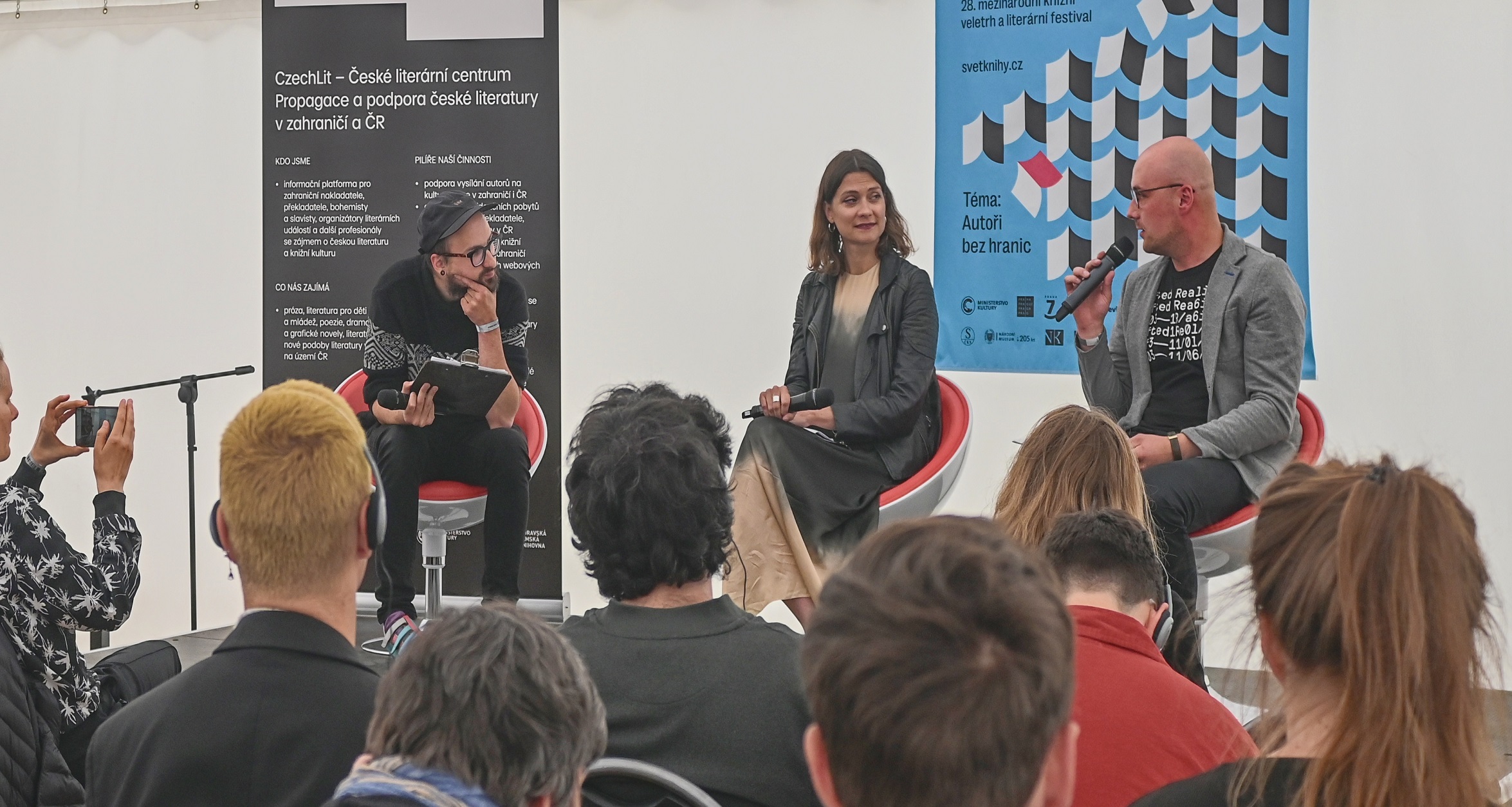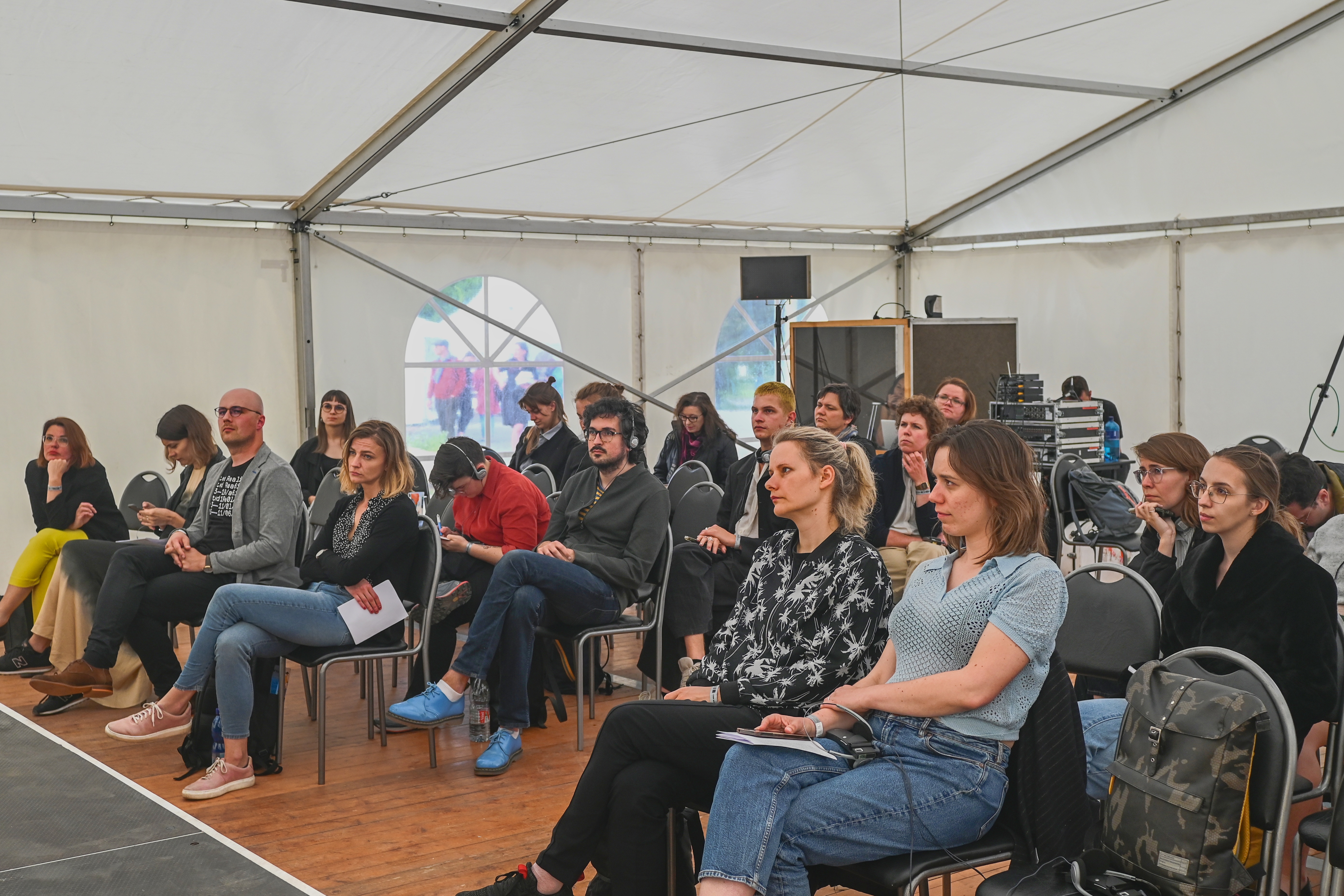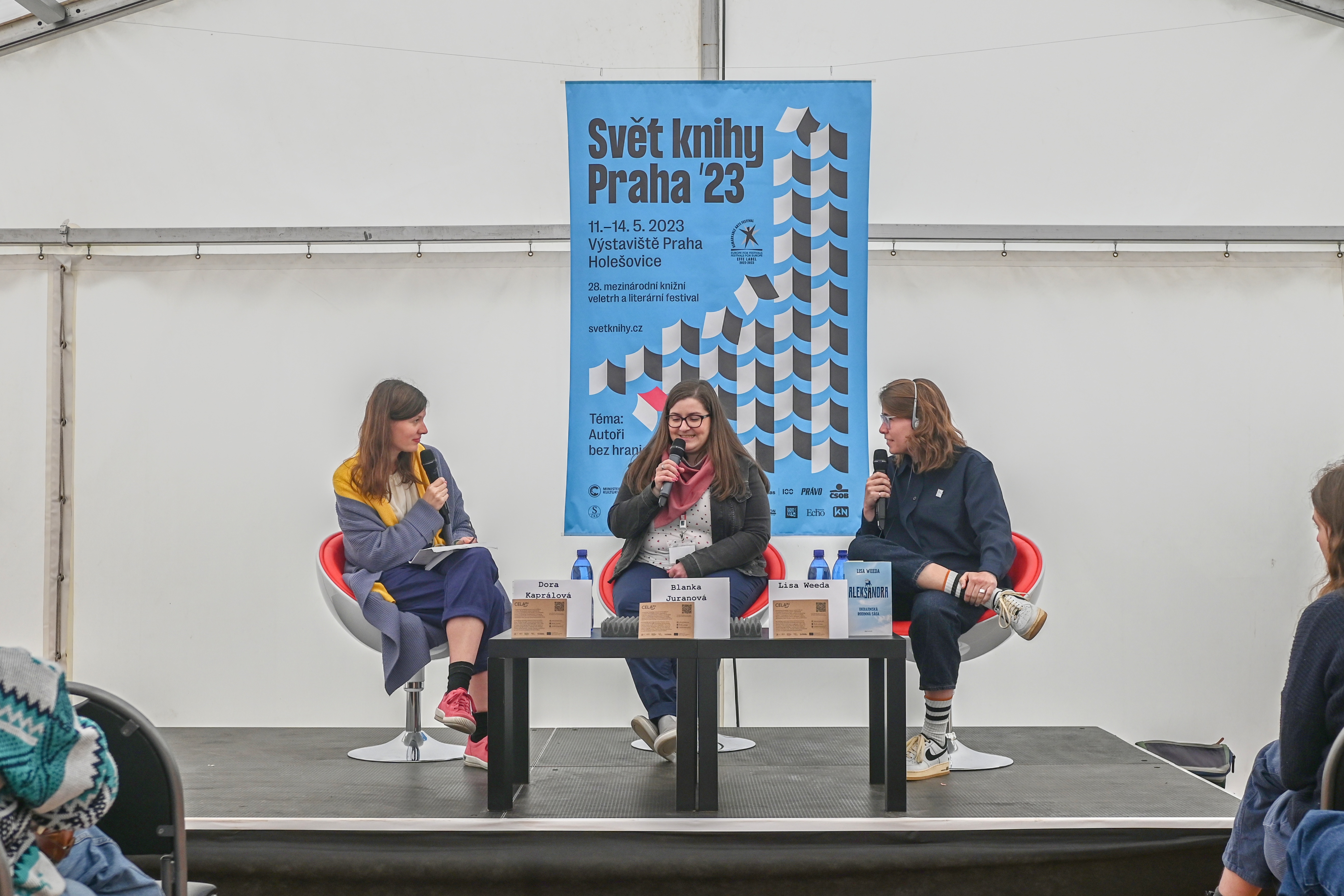Memories from Book Fair in Prague - By Urszula Jabłońska, Writer PL
The book fair Svet Knihy starts with a bang!
Writers and important figures from the cultural world gather in the majestic building of the National Museum in Prague. A folk band is playing, champagne glasses are ringing, laughter and backstage conversations are heard in every corner. It’s a great opportunity to learn who is who in the Czech literary world. A special surprise awaits the CELA team – as guests from abroad we will visit the nooks and crannies of the museum with a guide. We climb almost to the roof topped with a stained-glass dome to admire is a beautiful view of Prague at night.
For years, the book fair was held in the historic Industrial Palace, building as beautiful as the National Museum. Unfortunately, a large part of it burned down in 2008 and reconstruction is still underway. Luckily, the minimalist Bohemia Pavilion, in the Neo-Renaissance style, is still standing. Next morning CELA’s authors and translators meet there with representatives of leading Czech publishing houses. Anyone interested in our books?
The actual fair was moved to tents and halls that are located near the Planetarium, in the middle of a green park. It feels a bit like a music festival – you can browse through new book releases at one of the numerous stands, listen to authors in one of the tents or buy a hot dog and a glass of wine (who would have thought that Czech wine is so delicious!) and just sit on the grass, immerse yourself in reading.
However, we sit in a circle not to read, but to prepare for the afternoon performance – we will present a two-hour program about CELA to the Czech audience.
People are already gathering in the tent. Apparently among audience there is a lot of beginner writers. The evening is hosted by the well-known Czech slammer Filip Koryta. The Czech audience laughs at his jokes, although they are not fully understood by foreign guests. In the evening we will spend long time discussing, why Czech humor is so specific.
And so it begins! Anna Beata Hablova, the most seasoned in stage battles, comes to the podium to read a fragment of her latest book. Then it's time for author-translator duos. On the stage in turn stand: Urszula Jabłońska from Poland and translator Tadeas Dohnansky, Yelena Schmitz from Belgium (the Czech version is read by Hablowa) and Marija Pavlović from Serbia with the translator Marketa Chlebovska. The evening ends with Lucie Faulerova, winner of the European Union Prize for Literature, who reads a fragment of her prose and answers Filip's questions about CELA.
The audience applauds for a long time and wants to know, when they can apply for the next edition of the CELA program. But that's still a secret for now.
After the performance Michala Cicvakova from the Czech Literary Center leads us through the passages around the Lucerna palace, where we admire “a statue of King Wenceslas riding an upside-down dead horse” a sculpture by Czech artist David Cerny. Oh, the Czech sense of humor again! Finally, we come to the cult theater Cinoherni. Dinner and delicious Czech beer (and wine) are waiting for us in a nearby cafe. There are few dances through the evening, but a lot of discussions about the ongoing Eurovision Song Contest, which has die-hard fans among CELA participants. This year singers from Czech Republic, Poland, Belgium and Serbia entered the finals. Who will win?
The next day we have free time to take a look at the most important monuments of Prague. Riddle – under the weight of how many people will the Charles Bridge collapse? I think that moment is approaching. We have lunch at the iconic Louvre restaurant. It was founded in 1902 and still has an atmosphere of old-fashioned luxury and elegance. Franz Kafka and Albert Einstein used to come here. Have they ever met? Probably not, because Kafka and his friend usually rented a separate room for themselves. The first Czech Pen Club was also established in the Louvre.
With batteries charged with fresh literary energy, we head back to the fairgrounds. The meeting with the Dutch author Lisa Weeda, whose book "Aleksandra" has already been translated into eight languages, is about to begin! Lisa gracefully summarizes her family history and explains, why there are so many deer motives in the book. The audience is eager to know more about what she and her family think about the Russian invasion of Ukraine. Next to Lisa sits Dutch-Czech translator Blanka Juranova, who talks about her work on translation.
And this is the most beautiful thing about the CELA program – authors and translators from different countries do not compete with each other like singers in Eurovision. The effects of their peaceful cooperation can be presented to the audience at the largest European literary festivals.


